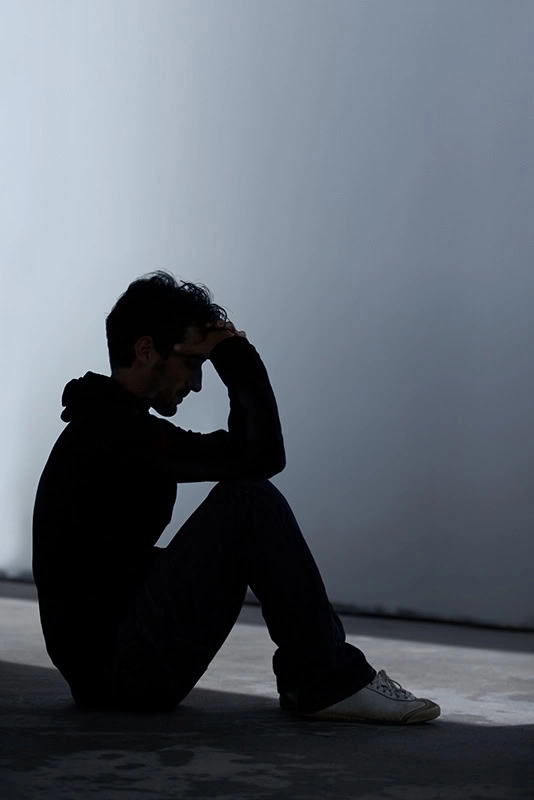Opioid Addiction Treatment in Washington

Opioid Addiction Treatment Program in Washington
Opioid addiction is one of the most challenging battles individuals can face. At Rebuilt Treatment, we are a comprehensive opioid addiction treatment center in Washington specifically designed to support those struggling with opioid addiction.
Your Path to Recovery Begins at Rebuilt Treatment
At Rebuilt Treatment, we understand that recovery from opioid addiction is a deeply personal journey. That’s why our opioid addiction treatment program in Washington is built around a tailored, holistic approach. We offer varying treatment options, including medically supervised detox, individual therapy, group counseling, and family support. Each program is designed to address not just the addiction but also underlying factors that contribute to substance use, whether those are mental health issues, trauma, or stress.
Our team takes the time to understand each client’s unique situation. Then, we create a personalized treatment plan that aligns with their recovery goals.
Choosing Rebuilt Treatment means choosing a comprehensive, compassionate approach to overcoming opioid addiction. We offer more than just treatment—we offer a path forward.
Our client-centered approach ensures everyone receives care tailored to their specific challenges and goals. The combination of individualized treatment plans, a compassionate team, and holistic therapies ensures that you’re not only treated for opioid addiction but also supported in building a healthier and generally more fulfilling life post-recovery.
We’re an opioid addiction treatment center in Washington, empowering our clients to reclaim their lives and maintain long-term sobriety.

How Opioid Addiction Affects Your Brain and Body
Opioids, including prescription painkillers and heroin, affect the brain in powerful ways. When opioids are used, they bind to specific receptors in the brain and also the spinal cord, leading to a release of dopamine – the brain’s “feel-good” chemical. This flood of dopamine creates a sense of euphoria or pleasure, which is what makes opioids so addictive. Over time, the brain will start to rely on the drug to feel joy, and the natural production of dopamine is diminished.
As addiction develops, the brain’s reward system is altered. The brain becomes less responsive to normal rewards like food, social interaction, or hobbies, which then creates an intense craving for the drug. This brain chemistry change makes recovery difficult, as individuals with opioid addiction often struggle to experience pleasure or motivation without the presence of the drug.
At Rebuilt Treatment, we understand how deeply opioids impact both the brain and body. That’s why our opioid addiction treatment center in Washington provides a holistic approach to tackling both the physical and psychological aspects of addiction.
We work to heal the mind and body through personalized treatment programs, therapy, and medically supervised detox. Ultimately, we help individuals restore balance and regain control over their lives.
Common Signs of Opioid Addiction
Opioid addiction can be difficult to recognize, especially in its early stages. However, several physical, behavioral, and emotional signs may indicate someone is struggling with opioid use.
Recognizing signs early can make all the difference in getting the help needed before addiction takes a more serious toll. Here are some common signs to watch for:
Behavioral Changes
- Withdrawing from family, friends, and social activities
- Prioritizing drug use over work, relationships, and other responsibilities
- Lying or being secretive about activities
- Increased risky behaviors, like using opioids in unsafe environments
- Financial problems due to spending money on opioids or related activities
Emotional Symptoms
- Mood swings, irritability, or increased anxiety
- Difficulty managing stress without using opioids
- Losing interest in things like hobbies that were enjoyed previously.
- Feelings of guilt, shame, or hopelessness
Physical Signs
- Drowsiness or “nodding off” during normal activities
- Slurred speech or impaired coordination
- Constricted pupils (a typical symptom of opioid use)
- Frequent nosebleeds (for those who snort heroin or opioids)
- Track marks or needle marks on arms, legs, or other areas of the body
- Weight loss
- Neglecting personal hygiene
Getting help at an opioid addiction treatment center in Washington, like Rebuilt Treatment, can provide the support needed to address these issues before they escalate. Early intervention allows individuals to access medical care, therapy, and resources designed to halt the progression of addiction and start the recovery process before long-term harm is done.
Understanding the Detox Process at Rebuilt Treatment
The detox process is often the first and most crucial step in overcoming opioid addiction. When someone decides to break free from the grip of opioids, the body goes through withdrawal, which can be physically and emotionally intense. These withdrawal symptoms can include nausea, sweating, anxiety, and muscle pain, making the process feel overwhelming.
We offer medically supervised detox to help manage these symptoms and ensure our clients are supported throughout the process. Our team closely monitors each client’s health, providing medication and care to ease discomfort and ensure a smooth transition into the next phase of treatment. The goal is not just to help clients get clean but to do so in a way that prepares them mentally and physically for the long-term recovery that follows. By choosing Rebuilt Treatment, clients benefit from our expertise as an opioid addiction treatment center in Washington.
Therapeutic Approaches Used in Our Opioid Addiction Program
Once the detox process is complete, it’s important to focus on the emotional and psychological parts of addiction. At Rebuilt Treatment, we use a range of therapeutic approaches addressing the underlying causes of opioid use and help clients develop the skills needed for long-term recovery.
One of the key therapies we use is Cognitive Behavioral Therapy (CBT), which helps clients identify and then challenge negative thought patterns and behaviors that contribute to addiction. For example, if someone uses opioids as a way to cope with stress, CBT helps them learn healthier coping mechanisms, like mindfulness and problem-solving skills.
In addition to CBT, group therapy plays a significant role in our treatment programs. It provides clients with a safe space to share experiences, gain support from others, and build a sense of community. This can be particularly powerful for those who feel isolated or misunderstood due to their addiction.
We also offer family therapy. This therapeutic approach helps repair relationships that may have been strained by addiction. This therapy brings family members together to learn about addiction, improve communication, and build a supportive environment for the client’s recovery.
These therapies are essential for long-term recovery. They address the deeply held root causes of addiction and help individuals develop healthy behaviors and coping strategies.

How Rebuilt Treatment Supports Clients Beyond Detox
At Rebuilt Treatment, we know that detox is just the beginning of the recovery journey. After detox, it’s crucial to have continued support to prevent relapse and maintain sobriety. That’s why we offer long-term recovery options, ensuring that individuals have the tools and resources they need to rebuild their lives.
Our highest level of care is our partial hospitalization program (PHP). It’s intensive and short-term, providing a higher level of care than traditional outpatient services. It is well-suited for those who don’t require 24-hour supervision. Our Intensive Outpatient Program (IOP) provides structured therapy sessions several times a week while offering the flexibility to manage daily responsibilities like work or family. For those further along in recovery, our outpatient services provide continued support with less intensive therapy, helping clients stay on track.
Additionally, sober living support plays a key role in the transition back to everyday life. Our sober living options offer a safe and structured environment for individuals in early recovery, helping them maintain sobriety and build healthy routines.
At Rebuilt Treatment, we understand that long-term recovery requires ongoing care, which is why we provide comprehensive support services such as employment assistance and family counseling. These services help clients address the practical aspects of their lives while also focusing on emotional and relational healing. By offering these services, Rebuilt Treatment helps clients create a foundation for lasting recovery and supports their journey every step of the way.
Contact Our Opioid Addiction Treatment Center in Washington
If you or a loved one is struggling with opioid addiction, don’t wait to get help. Rebuilt Treatment is here to offer the support, guidance, and expertise needed to overcome opioid addiction and reclaim a healthy, fulfilling life. Our compassionate, non-judgmental team is ready to help you take the first step toward recovery.
Contact Rebuilt Treatment today and start your path to recovery with our comprehensive opioid addiction treatment program in Washington. We’re here to help you every step of the way, from detox to long-term recovery.
Explore All of Our Services
Life Skills
One of the many ways RTR will help clients with life skills is by teaching them how to communicate effectively and learning how to deal with thoughts and emotions in a healthy and beneficial way.
Process Group
Being a part of a process group at RTR allows feedback, perspective, and accountability from peers and helps challenge one another on negative beliefs and behaviors, while providing support and encouragement to make positive changes.
Relapse Prevention
Relapse Prevention is a crucial aspect of addiction treatment focusing on identifying triggers, developing coping strategies, and creating a supportive environment to minimize the risk of relapse.
